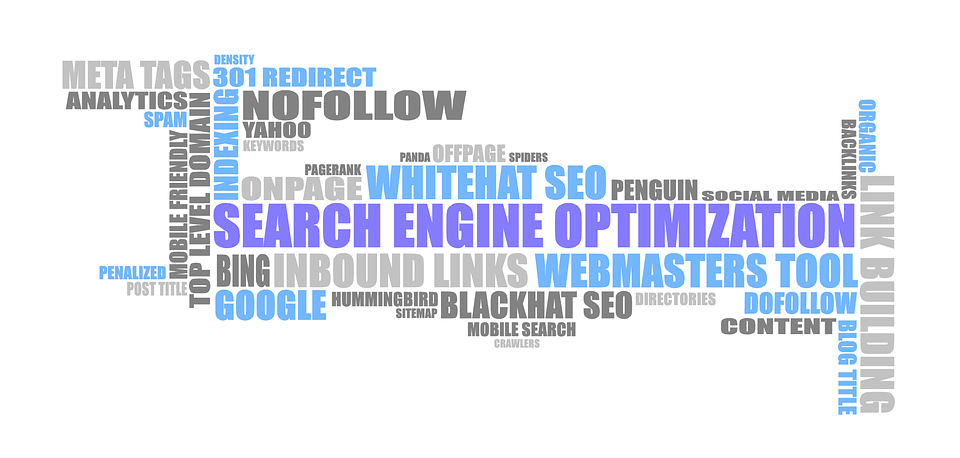Mobile-First Indexing and On-Page SEO: How to Optimize Your Site for Mobile Users
With most online searches happening on mobile devices, Google now prioritizes mobile-friendly websites for indexing and ranking. This shift, known as mobile-first indexing, means that Google primarily uses a website's mobile version to determine search rankings. At SEO University by Salterra, we teach businesses and marketers how to optimize their websites for mobile users, ensuring fast load times, responsive design, and enhanced user experience. This guide covers how mobile-first indexing affects On-Page SEO and the best ways to optimize your site for mobile rankings. What is Mobile-First Indexing? How Mobile-First Indexing Works Google crawls and ranks websites based on their mobile versions rather than their desktop versions. This means that if a website isn’t optimized for mobile, it may struggle to rank well in search results. Google’s Key Considerations for Mobile-First Indexing: ✔ Mobile page speed and loading performance ✔ Responsive design and usability on smaller screens ✔ Consistent [...]
How Core Web Vitals and Page Speed Affect On-Page SEO and Google Rankings
Google prioritizes user experience (UX) as a ranking factor, making Core Web Vitals and page speed essential components of On-Page SEO. Websites that load quickly and offer a smooth browsing experience are rewarded with higher rankings, better engagement, and improved conversions. At SEO University by Salterra, students learn how to optimize Core Web Vitals and page speed to improve search visibility and user satisfaction. This guide covers how page performance impacts SEO and what steps to take for optimization. What Are Core Web Vitals? Core Web Vitals are a set of Google ranking factors that measure website performance and user experience. These metrics focus on: ✔ Loading speed – How fast a page’s primary content loads ✔ Interactivity – How quickly users can engage with the page ✔ Visual stability – How smoothly content appears without unexpected shifts Google evaluates three key Core Web Vitals to determine site performance: [...]
SEO-Friendly URL Structures: Best Practices for Optimizing Slugs and Permalinks
A well-structured URL is one of the most essential elements of On-Page SEO. Search engines and users rely on SEO-friendly URLs to understand page content, navigate efficiently, and improve click-through rates (CTR). At SEO University by Salterra, students learn how to optimize URL structures to improve search rankings, enhance user experience, and maximize crawlability. This guide covers the best practices for creating SEO-friendly slugs and permalinks that boost website performance. Why URL Structure Matters for On-Page SEO Enhances Search Engine Crawling & Indexing Search engines analyze URLs to understand a page’s topic. A well-optimized URL improves: ✔ Crawlability – Ensuring that search engines can easily access content ✔ Indexation – Helping Google store and rank pages efficiently ✔ Keyword Relevance – Reinforcing primary search terms in URLs 🔹 Example: ✅ www.example.com/seo-friendly-url-structure 🚫 www.example.com/p=12345 (Not descriptive, lacks keywords) Improves Click-Through Rates (CTR) in SERPs URLs appear in search results, impacting [...]
How to Optimize Images for On-Page SEO: Alt Text, File Names & Compression
Optimizing images is a crucial part of On-Page SEO that directly impacts search rankings, site speed, and user experience. Search engines rely on alt text, file names, and structured image data to understand and index images effectively. At SEO University by Salterra, students learn advanced image optimization techniques that enhance website performance and search visibility. This guide breaks down the best practices for image SEO, ensuring that every visual element on your site contributes to better rankings and user engagement. Why Image Optimization Matters for On-Page SEO Improves Search Engine Indexing Search engines cannot "see" images the way humans do. Instead, they rely on alt text, structured data, and image metadata to understand visual content. Properly optimized images: ✔ Help Google and Bing index content accurately ✔ Improve search rankings for image-based queries ✔ Enhance accessibility for visually impaired users Boosts Page Speed & Core Web Vitals Large, unoptimized [...]
The Power of Internal Linking: Build a Strong Site Structure for On-Page SEO
A well-structured website is the foundation of successful On-Page SEO. Internal linking is a powerful strategy that enhances site architecture, crawlability, and user engagement, helping search engines understand content relationships. At SEO University by Salterra, we teach the importance of internal linking and site structure to improve search rankings, increase page authority, and provide a seamless user experience. This guide breaks down how internal linking works and why it is essential for On-Page SEO. What is Internal Linking? Internal linking refers to the practice of connecting pages within the same website. Unlike external links, which direct users to different domains, internal links: ✔ Help search engines understand content relationships ✔ Distribute link equity across pages ✔ Improve user experience by guiding visitors to relevant content ✔ Support website navigation and content hierarchy Properly implemented internal links strengthen On-Page SEO and improve a website's ability to rank higher in search [...]
How Schema Markup Enhances On-Page SEO & Boosts Search Visibility
Search engines rely on structured data to understand and display content more effectively. Schema markup, a key component of On-Page SEO, helps websites stand out in search results by generating rich snippets, enhanced listings, and interactive search features. At SEO University by Salterra, we teach advanced schema implementation strategies that improve search visibility, increase click-through rates, and strengthen SEO performance. This guide explains how schema markup works, why it matters for On-Page SEO, and how to implement it for better search engine rankings. What is Schema Markup? Schema markup is structured data added to web pages, helping search engines interpret content more accurately. By implementing schema, websites can unlock rich search features such as: ✔ Featured Snippets – Highlighted content that appears above search results ✔ Rich Results – Enhanced listings with images, star ratings, and additional information ✔ Knowledge Panels – Display key business details in Google’s sidebar [...]







